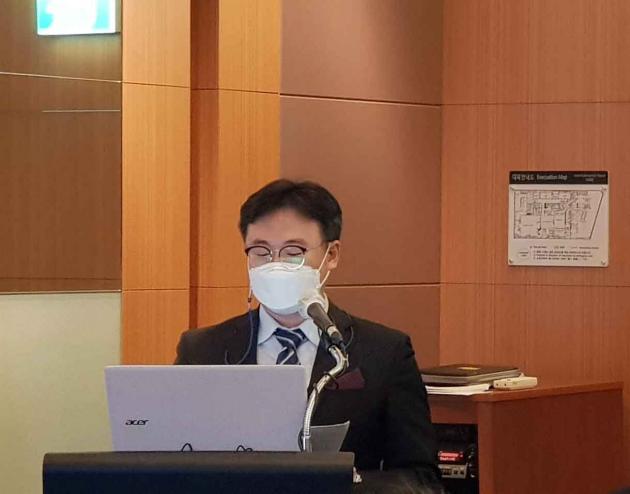“Liver Week 2020,” the first online international conference on the liver, kicked off for a two-day, cosponsored by four related groups, including the Korean Association for the Study of the Liver (KASL) on Thursday.

The three other associations sponsoring the event are the Korean Association of Hepato-Biliary-Pancreatic Surgery, Korean Association for Lung Cancer, and Korean Liver Transplantation Society. According to the organizers, the conference attracted more than 1,400 participants from 28 countries, and there will be 455 abstracts presented during the event.
The symposium will hold a policy forum that will provide policy directions for combating hepatitis C in Korea and promote awareness.
“The road to eradicating hepatitis C in Korea is a long way ahead,” said Professor Kim Jeong-han, KASL’s public affairs director. “Korea is not included in the World Health Organization’s 10 Asian countries in the fight against the hepatitis C virus list.”
Kim added that it is because Korea has failed to make much progress in eradicating hepatitis C. He stressed that while WHO aims to eliminate hepatitis C by 2030, looking at the current local trend, Korea will not be able to eradicate the disease before 2051.
“This means that another generation will have to suffer from hepatitis C,” Kim said. “Therefore, the KASL has formed a task force to accelerate its eradication efforts.”
According to Kim, the task force will call for the government to integrate the administration of hepatitis B and C policies, provide budgetary support, establish an organization exclusively responsible for viral hepatitis, and reconsider the feasibility of introducing national hepatitis screenings.
As part of such efforts, the association will run a pilot project for the early detection of hepatitis C, along with the Korea Centers for Disease Control and Prevention.
“The project will run from Sep. 1 to Oct. 31 and will include middle-age citizens eligible for general health checkups but have not yet received them yet,” Kim said. “If any of the participants test positive for hepatitis C, the original blood collected will be used to conduct additional polymerase chain reaction (PCR) tests. The KCDC will pay the entire treatment cost.”
The symposium has invited Professor Chen Chein-jen from Taiwan, former vice president of Taiwan, who is implementing a pan-governmental hepatitis C eradication policy in the country, to talk about the situation in Taiwan.
Professor Chen will also be participating in a forum that aims to present the future vision for hepatitis C policies together with scholars from Korea, Japan, the U.S., and representatives of the liver disease patients association on Friday.
The conference will also present several types of research focusing on the clinical course of Covid-19 infected patients with chronic liver disease or cirrhosis, and the effect of elevated liver function levels in such patients.

